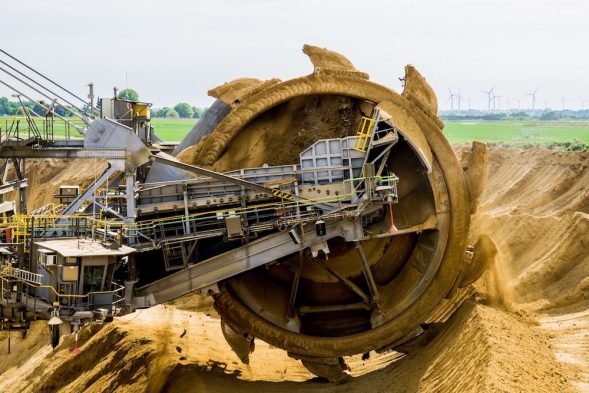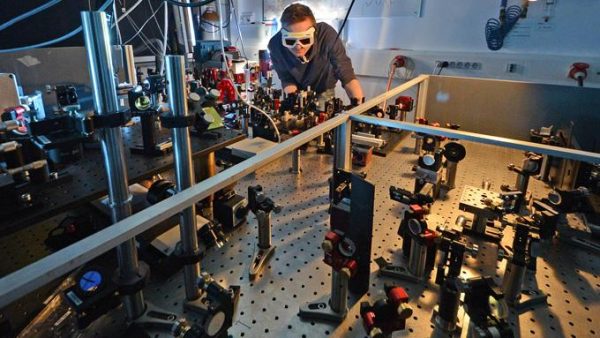Engineering is a wide word that refers to any field of science or technology that focuses on the design and development of machines, engines, and other items, as well as architectural constructions. After all, “engineering” something entails its creation, construction, or design.
Some engineering disciplines are considered subfields of larger engineering disciplines. Environmental engineering, for example, is sometimes referred to as a subset of civil engineering. Furthermore, certain fields, such as industrial engineering, are referred to as interdisciplinary since they incorporate elements from many disciplines.
Some forms of engineering, such as nuclear engineering, biological engineering, and rehabilitative engineering, fall into more than one area and some that don’t fit cleanly into any category.
Different Types of Engineering
Engineering is a broad field that can include almost any science, profession, or trade. Know about 46 types of engineering and career options for engineers.
1. Chemical Engineering
According to the US Bureau of Labor Statistics, chemical engineers utilize their scientific knowledge ” such as chemistry, biology, physics, and arithmetic ” to address problems that influence the usage or manufacture of chemicals, food, pharmaceuticals, and other products (BLS). They mostly work in offices and labs, and virtually all of them work full-time.
Chemical engineers apply their understanding of science and manufacturing to transfer chemical processes created in a lab to a commercial or industrial process to make goods, and then analyse and improve those processes.
Chemical engineers convert laboratory techniques into practical applications for commercial product manufacturing, then strive to maintain and enhance those processes. They rely on engineering’s three fundamental pillars: arithmetic, physics, and chemistry (though biology is playing an increasing role). Chemical engineers are responsible for designing and troubleshooting processes for the manufacture of chemicals, fuels, foods, medicines, and biologicals, to mention a few. Large-scale manufacturing plants frequently use them to increase productivity and product quality while lowering costs.
Such jobs include biomedical or nuclear engineering and occupational and health safety specialists or technicians.
2. Civil Engineering
Civil engineers are responsible for resolving infrastructure issues. According to the BLS, the projects they design, develop, and manage encompass a wide variety of public and private sector projects, including bridges, roads, and tunnels; dams; and water and sewage systems. Civil engineers were responsible for the construction of infrastructure such as the Brooklyn Bridge, the Erie Canal, and the Thames Tunnel in London. The American Society of Civil Engineers has a list of hundreds of civil engineering landmarks, and these are only three of them.
They frequently alternate between working in an office and on project locations. According to the BLS, similar jobs include construction manager, landscape architect, and urban or regional planning.
3. Electrical Engineering
According to the Bureau of Labor Statistics, electrical engineers are responsible for designing, testing, and producing electrical components such as motors, navigation and communications systems, and power generation. They operate in a variety of fields, including as research, production, and telecommunications.
Electrical engineering is one of the most diverse disciplines in the industry, thus career opportunities vary greatly from one sector to the next. Many professions use electrical engineers, from working with circuits and creating computers and other electronics to building fibre optic networks or vision sensors for automobiles.
According to the BLS, similar jobs include electrician, biomedical engineer, and architectural and engineering manager.
4. Mechanical Engineering
Mechanical engineers create mechanical and thermal sensing equipment, such as engines, tools, and machines, by designing, building, and developing them. According to BLS, mechanical engineering is one of the most diverse engineering areas, with products ranging from electric generators to batteries to refrigeration systems. Mechanical engineers examine projects to see how a mechanical device may be useful, then build and test devices to aid the project. According to BLS, they may also analyse equipment that has failed to discover how a component of the mechanics needs to be fixed.
According to the BLS, other related jobs include materials engineer, petroleum engineer, and mechanical engineering technician.
5. Industrial Engineering
Industrial engineering is the last major engineering discipline, and it integrates engineering with common business techniques to decrease costs, enhance quality, and boost efficiency. These professionals are frequently employed in service, entertainment, and healthcare industries, among others. You must be able to work effectively with others and emphasise safety and productivity as an industrial engineer.
Designing facilities and information systems, managing inventory, monitoring staff assignments, and assuring workplace safety are some of the major responsibilities of industrial engineers.
6. Aerospace Engineering
Aerospace engineers designed, analyzed, modeled, and tested aircraft, spacecraft, satellites, missiles, and rockets. Aerospace technology is also applicable to a wide range of other applications involving things moving through gases or liquids. Golf balls, high-speed trains, hydrofoil ships, and towering structures in the wind are all examples. You might work as an aeronautical engineer on the Orion space programme, which aims to land people on Mars by 2020. You might also be working on a new generation of space telescopes, which have been the source of some of our most important cosmological findings. As an aeronautical engineer, however, outer space is only one of many regions to explore. For our airways, you might design commercial planes, military jets, or helicopters. You may also construct the most cutting-edge ground and marine transportation, such as high-speed trains, racing automobiles, or deep-sea vessels that study life at the ocean’s depths.
7. Agricultural Engineering
Agricultural engineers utilize engineering technology and science knowledge to improve agriculture and the effective use of biological resources. Agricultural engineers use engineering design and analysis to conserve natural resources, build power systems to assist agriculture, and offer environmental controls, in addition to making advancements in farming and agriculture.
8. Audio Engineering
The majority of individuals take the noises we hear on a daily basis for granted. However, you might be surprised to find that audio production is a unique activity that combines art and science. Have you ever considered how the noises in a video game, a movie, a television show, or a concert were created? In this sector, there are literally hundreds of different careers available that are both lucrative and difficult. In the subject of audio engineering, there are several employment options. Perhaps you’re a musician, have an interest in electronics and sound, or would like to collaborate with individuals who create and perform in a variety of entertainment sectors. Work in audio engineering is both hard and rewarding.
9. Bioengineering Engineering
Bioengineers research biological systems and use what they learn to address issues. They investigate the safety of food sources, develop biologically based sensors, and maintain desired organisms alive in fermentation processes. To eliminate trash and clean up polluted land and water, bioengineering is frequently employed. These engineers make a significant contribution to human health and the environment.
10. Biomedical Engineering
Biomedical engineers study biology and medicine in order to build health-care technology. Medical diagnostic machines, medical tools, artificial organs, joint replacement components, and prosthetic devices are among the products they create. Rapid progress in these fields will very certainly continue throughout your life.
11. Ceramic Engineering
Ceramic and materials engineers utilize their creative and technical talents to address challenges, creating usable products in a variety of shapes from ordinary and exotic materials. We utilize a variety of these items on a daily basis. We utilize goods made possible by the innovations and designs of engineers working with ceramics and other materials every time we chat on the phone, use a computer, or cook meals in a microwave oven.
12. Computer Engineering
The design, development, installation, and maintenance of computers and computer-controlled equipment for the benefit of humanity is known as computer engineering. Computer engineering is usually offered as a separate degree programme or as a sub-discipline of electrical engineering at most institutions. Given the ubiquitous usage and integration of computers into our daily lives it’s difficult to distinguish between what an electrical engineer needs to know and what a computer engineer needs to know. As a result, a number of institutions now offer dual degrees in electrical and computer engineering.
13. Environmental Engineering
Environmental engineering is the study of environmental protection methods. The majority of us are passionate about reducing pollution and safeguarding our natural resources. Imagine having not only a passion for protecting the environment, but also the technical know-how to address these serious issues! Finding methods to clean up our seas, rivers, and drinking water, improving air pollution equipment, establishing more effective recycling systems, or identifying safe ways to dispose of toxic waste as an environmental engineer will make a significant difference in the survival of our world.
14. Geological and Geophysical Engineering
Geological and geophysical engineers use engineering concepts to find and exploit natural resource deposits and design foundations for big buildings, bridges, and other structures, drawing on the science of geology. Civil, mineral, mining, and petroleum engineering are all related disciplines of engineering.
15. Marine and Ocean Engineering
These engineering areas all cover the design of ocean vehicles, marine propulsion systems, and maritime buildings such as ports, docks, and offshore drilling platforms. These engineers are working to discover and develop the ocean’s natural riches and transportation infrastructure. A research ship, for example, hovers 200 miles off the coast of Washington state, controlled by navigational satellites hundreds of miles above. The ship is connected to a remotely controlled robotic vehicle on the seafloor 7,000 feet below, which shoots live, high-definition footage of volcanic smoker vents and unusual life-forms through a tiny connection of fiberoptic strands and electrical cables. The footage is sent in real time from a communications satellite 22,500 miles above the earth to classrooms all around the United States.
16. Mining Engineering
Mining engineers are experts in all aspects of obtaining minerals from the ground. They plan and manage the building and operation of mines and related equipment. They also seek to reduce the negative impacts of mining on the environment. To satisfy the world’s requirements, these engineers provide energy and rare minerals.
17. Nuclear Engineering
Nuclear engineers use the atom’s power to help humanity. They are looking for effective ways to harness and put to good use the little bursts of energy produced by sub-atomic particles breaking apart molecules. As a nuclear engineer, problems in consumer and industrial electricity, space exploration, water supply, food supply, environment and pollution, health, and transportation may confront you. Participating in these broad areas might lead to a variety of fascinating and demanding jobs. Radiation interactions with matter, radiation measurements, radioisotope manufacturing and usage, reactor engineering, and fusion reactors and materials are only a few examples.
18. Petroleum Engineering
Petroleum engineers investigate the ground in order to locate oil and gas reserves. Oil wells, storage tanks, and transportation networks are all designed by them. They are in charge of overseeing the development and operation of oil and gas fields. Petroleum engineers are working on new technology that will allow them to extract more oil and gas from each well. They contribute to the global supply of energy and chemical raw materials.
19. Biomedical Engineering Degree
The studies of medicine and biology are combined in biomedical engineering. Biomedical engineers use their design talents to help with biological and medical research. They do so in order to help develop healthcare treatment technologies. They are in charge of developing and maintaining diagnostic gadgets. EEGs, MRIs, and other imaging equipment are examples of devices. Doctors use these devices to diagnose their patients’ medical issues. This is a fast-paced business that, while difficult, may be a rewarding career path.
20. Biomechanical Engineering Degree
The study of organisms and mechanics and how the two work together to solve issues is known as biomechanical engineering. Environmental issues such as waste control and pollution-free rivers are among the practical uses of this developing sector. As one may guess, it has strong links to Biomedical Engineering and Agricultural Engineering. The majority of people who work in biomechanics have a Master’s degree or higher in biomechanical engineering.
21. Automotive Engineering Degree
Automotive engineering, as the name indicates, is concerned with the design and manufacture of automobiles. Engineers are needed in areas such as mechanical design, performance, production, electrical engineering, and systems management in the automobile sector.
22. Structural Engineering Degree
Structural engineering is a field of civil engineering that focuses on the design of various structures, such as residences, commercial buildings, art museums, and retail establishments. To guarantee that buildings and structures are safe for a long time, structural engineers must comprehend building construction and the impacts of natural elements such as erosion, corrosion, wind, and water. Structural engineering is a focus provided by some institutions as part of a civil engineering degree.
23. Architectural Engineering Degree
Architectural engineers work on projects during the construction, planning, and design stages. In collaboration with other team members, the focus is on the structural and interior design of the building. Heating, ventilation, air conditioning, electrical, fire protection, lighting, plumbing, and other project-specific systems are all included. Natural calamities such as earthquakes and storms are given special attention in some places.
24. Robotics Engineering Degree
A robotics engineering degree focuses on automation and the use of robots to aid with repetitive activities, such as those seen in the industrial industry. To attain maximum efficiency, robotics engineers will generally design robotic technology and build maintenance methods. In the next five years, this sector is anticipated to increase by up to 15%.
25. Microelectronic Engineering Degree
A Microelectronic Engineering degree may be of interest to you if you have an interest in electronics. Microelectronics is a branch of electrical engineering that emphasises the word “micro.” Microelectronic engineers are experts in the design and development of tiny electrical devices. It’s used in a variety of industrial settings. We’re moving away from large technological gadgets like the first cell phones and desktop PCs. We create technological gadgets that are smaller and more convenient. As a result, there is a strong need for microelectronic engineers. Microelectronic engineers can also help with project technical writing. As well as conducting testing to ensure that the product is in compliance.
26. Environmental Engineering Degree
One of the most common types of engineering degrees is a bachelor’s degree in engineering. The study of science and engineering to enhance our environment is known as environmental engineering. This includes the air we breathe, the food we eat, and the water we drink. Environmental engineers also research the effects of people on the environment, such as pollution caused by development and manufacturing activities. Civil engineering includes environmental engineering as a subset.
27. Materials Science Engineering Degree
Materials Science engineering is the study of materials and why they behave or react the way they do. Plastics, ceramics, and polymers are examples of this. Everything around us is formed of materials, and as we progress, there is a growing desire for stronger, more ecologically friendly, and lighter materials. Research roles as well as internships in the business are available. Materials Science Engineering is a hands-on, practical degree with a strong demand for graduates.
28. Agricultural Engineering Degree
An agricultural engineering degree teaches students how to apply engineering principles to the agricultural industry, such as soil conservation and salinity, ground preparation, irrigation, farm machinery design and production, and assisting in the development of more efficient harvesting techniques. Working in a consulting role or in a related industry, such as machinery design and manufacture, is the most common occupation.
29. Paper Engineering Degree
Paper Engineering is a branch of chemical engineering that focuses on the chemical and mechanical processes involved in paper manufacturing. This sort of degree entails both research and practical assessments, which are usually lab work. Students study about molecular science, wood pulping, and fluid dynamics, to mention a few topics.
30. Sustainability Design Degree
Sustainable engineering considers three key aspects of sustainability: environmental effect, social concerns, and economic factors. This encompasses the initial building phase and the whole life cycle of the product in development. Graduates can continue their education or work in areas including industrial waste water treatment, emission control, and hazardous waste management.
31. Systems Engineering Degree
A multidisciplinary engineering degree, systems engineering is a multidisciplinary engineering degree. While it has developed through time as technology and efficiency have improved, its major focus is on building and enhancing current systems. Systems engineers provide tools for improving workplace efficiency, risk management, and measurement and refinement.
32. Bachelor’s Degree in Petroleum Engineering
A petroleum engineer is in charge of extracting oil and gas from the ground. They’re also working on creating new extraction methods and technologies, including more efficient and environmentally friendly ways. Petroleum engineering is one of the most well-paid engineering fields. For gas and oil firms, petroleum engineers are crucial in finding reserves under the earth’s surface.
33. Geological Engineering Degree
For mining and building operations, geological engineers integrate engineering and research expertise. Construction companies employ geological engineers. Before beginning construction, they examine the ground conditions as well as other natural dangers (earthquakes, for example). Geological engineers are in great demand as natural resources become scarce. Geological engineers operate in both the corporate and public sectors.
34. Materials Engineering
Math, physics, and chemistry are used in materials engineering to investigate, explain, and regulate how materials operate, as well as to develop new materials, find the best materials and processing processes, and understand why materials fail.
35. Physics Engineering
An engineering physics degree integrates engineering with physics, allowing students to research the two disciplines’ regions collide. It also serves as a springboard for graduate study in physics or engineering. The majority of graduates will work in research or another engineering discipline such as mechanical or nuclear engineering. This sort of graduate is in very great demand.
36. Photonics Engineering Degree
Photons are a kind of light that has a fixed wavelength. The field of photonics engineering is concerned with the study of light. This covers light production, light signal processing, light amplification, and light modulation. Telecommunications (optical signal processing and communication), medical, manufacturing, aviation, and computers are just a few of the industries that use this technology. Opportunities for competent Photonics Engineers are projected to grow considerably over the next decade.
37. Nanotechnology Engineering
Nano refers to a billionth of a metre, or between 2 and 20 atoms in length; for example, one nano-meter is 1 billionth of a metre or between 2 and 20 atoms in length. Nanotechnology is the study and manufacturing of exceedingly small devices using extremely small components such as molecules and single atoms. Nanotechnology, which has the ability to assist solve some of the world’s main issues, such as health and environmental concerns, is predicted to become as significant to humanity as the industrial revolution over time. Nanotechnology is a highly specialised area with applications in a wide range of businesses and fields.
38. Biomedical Engineering
Biomedical engineering focuses on improvements in technology and medicine to produce new technologies and equipment with the goal of improving human health.
39. Metallurgical Engineering Degree
A metallurgical engineering degree entails learning how to extract and purify metals and other minerals from ore using engineering concepts. Metallurgical engineers create and design processing processes and apparatus while also considering the influence of mineral processing on the environment.
40. Geomatics Engineering Degree
Geomatics Engineering is the study of exact measurement in order to map the earth’s surroundings utilising modern equipment and methodologies. Geomatics engineers are crucial in the design of future infrastructure, and they frequently deal with huge volumes of data to create digital replicas of topography and 3D maps. This involves research on GPS technology. Because there is a scarcity of skilled geomatics specialists, they are in high demand.
41. Project Management Degree
Many engineers opt to obtain a project management degree in order to advance in their careers. While some engineers may become project managers without a project management degree, a project management degree can assist you master PM concepts to guarantee that all technical divisions collaborate to complete major projects. Although many engineers collaborate with project managers, almost every road/highway or building/construction project involves civil engineers, architectural engineers, and electrical engineers. Having PM experience can provide you with a more complete perspective from all engineering perspectives.
42. Software Engineering
Software engineers build software for businesses either alone or in groups. Although software produced by an engineering team may be intended for commercial sale, it is equally typical for software to be developed purely for internal usage within the firm.
Software engineering teams work on projects that entail both creating new software and modifying and adding to existing software systems. From design to coding to testing and debugging, software engineering teams will often be involved in all aspects of the development process.
43. Quality Engineering
Any firm that receives or distributes huge numbers of items needs quality engineering. The quality engineer ensures that quality standards are maintained throughout the manufacturing process and that any items received satisfy the standards anticipated from suppliers.
The quality engineer frequently collaborates with management-level personnel from a company’s production units to ensure that all employees are adhering to the company’s product quality requirements. A quality engineer will also be in charge of recognising manufacturing difficulties and creating methods to remedy them.
44. Network Engineering
Network engineering is an important area for our daily life at home and at business. The demand for fast, dependable networks will only increase as we become more reliant on mobile devices and computing on the move, making network engineering a sector with a promising future.
Network engineers are in charge of developing network infrastructure, supervising the building and implementation of those networks, and then maintaining them after they’re up and running. Landline phone networks to satellite-based digital networks are all examples of networks. A network engineer may be responsible for both the hardware that runs and connects to a network as well as the software that controls it.
45. Design Engineering
A design engineer creates blueprints for an organization’s goods and production framework using computer-aided design (CAD) software. A design engineer must be able to think creatively in order to generate novel ideas, as well as have a wealth of technical knowledge in order to build an effective product or manufacturing process that complies with all federal, state, and local rules and industry standards. The design engineer will supervise the creation of prototypes based on their designs and participate in product testing.
46. Data Engineering
Data engineering is in charge of developing and constructing pipelines that process and transmit large amounts of data into an useable manner.



































